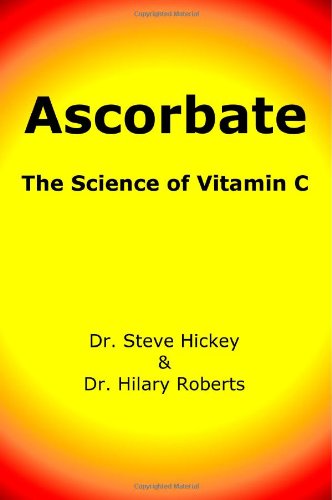Ascorbate: The Science of Vitamin C ebook download
Par lipscomb angela le samedi, mai 28 2016, 10:47 - Lien permanent
Ascorbate: The Science of Vitamin C by Steve Hickey Hilary Roberts


Ascorbate: The Science of Vitamin C Steve Hickey Hilary Roberts ebook
Publisher:
ISBN: 1411607244, 9781411607248
Page: 264
Format: pdf
Poor intake of vitamin C-rich vegetables and fruits is a common contributor to vitamin C deficiency. If you read the book “Ascorbate, the science of vitamin C” it goes into great length to explain how misunderstood this vitamin is, and how we really do probably need much higher doses than we currently recommend to people. Vitamin C, otherwise called ascorbate, has been found to have a link with cancerous tumour growth, according to University of Otago researchers. According to the Natural Standard (a group of scientists that reviews findings in alternative medicine), there is no clear evidence that vitamin C prevents or cures cancer, cataracts, or heart disease. Vitamin C has been advocated for many other therapeutic uses. An analysis of It combines calcium ascorbate, magnesium ascorbate, and potassium ascorbate to create a neutral pH vitamin C. Vitamin C or L-ascorbic acid, or simply ascorbate (the anion of ascorbic acid), is an essential nutrient for humans and certain other animal species. Vitamin C There is continuing debate within the scientific community over the best dose schedule (the amount and frequency of intake) of vitamin C for maintaining optimal health in humans. Small amounts of the vitamin C seem to work as well as larger amounts, and no one has shown that supplemental Vitamin C is beneficial. Although The National Academy of Sciences has established 90 mg/day (for adult males) and 75 mg/day (for adult females) as the Recommended Dietary Allowance (RDA) for vitamin C [9]. Despite the fact that most mammals can synthesize ascorbate (Asc), humans (along with other primates, bats, and guinea pigs) are unable to make vitamin C as a result of a mutation to the gene encoding L-gulono-1,4-lactone oxidase, the last enzyme in the Asc biosynthetic pathway [1].